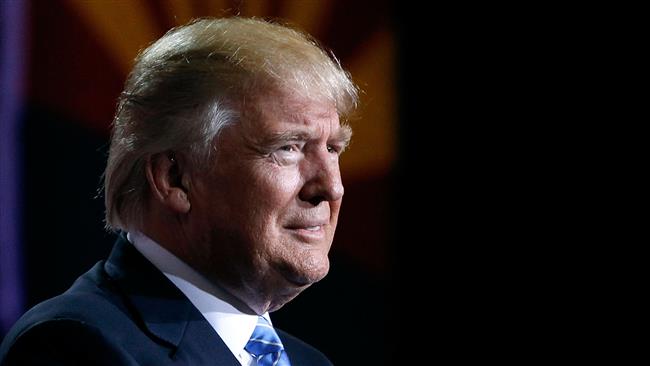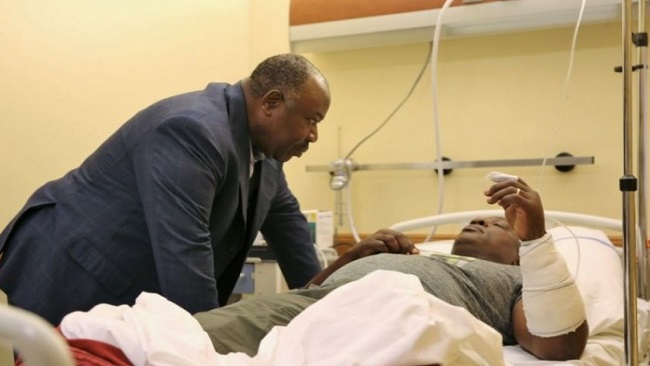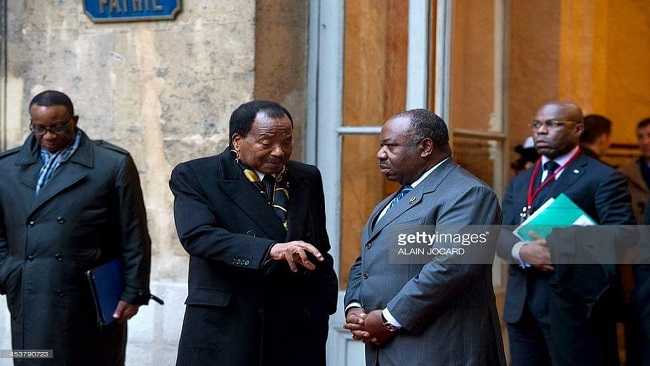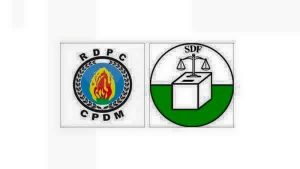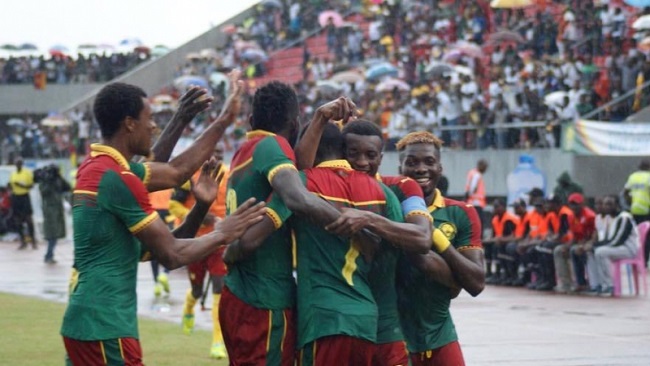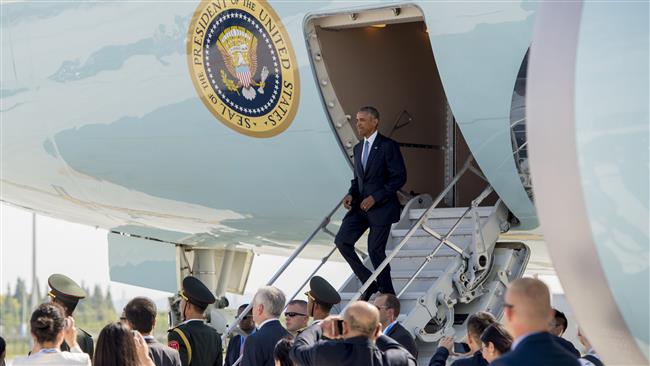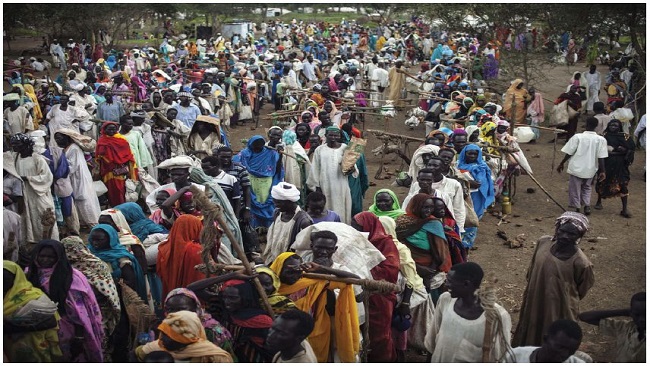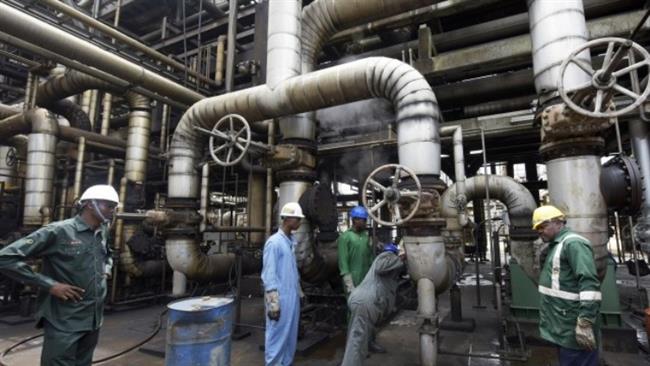Cameroon: Always at the receiving end
True to his word that Spanish companies were going to offer assistance to Cameroon in the organization of the 2016 and 2019 AFCONs, the Spanish ambassador to Cameroon, Jorge De Orueta Pemartin on Friday, September 2nd, offered a consignment of sports equipment offered by the three leading Spanish clubs, Athletico Madrid, Real Madrid and FC Barcelona. The equipment was received on the behalf of Cameroon by the minister of sports and Physical Education, representing the Head of State, in a ceremony at the Yaounde Sports complex on Friday September 2nd.
Speaking during the ceremony, the Minister Bidoung Mkpatt expressed gratitude to the Spanish government saying the event was a hallmark in Spanish-Cameroon relations in the domain of sports and serves as a prelude to the formalization of the relations between the two countries with an accord. He said the equipment which comprise balls, jerseys, videos, books and other training equipment will enable the national selections prepare well for the 2016 and 2019 AFCONs.
The Spanish ambassador who happens to be a former tennis player said he realised Cameroonians love sports with some of them putting on jerseys of Spanish clubs and even the national team corroborating the minister’s view that the event opens the way for deeper cooperation between Spain and Cameroon. He expressed the wish that the 2016 AFCON should be a success in every sense saying the Lionesses have a new supporter in his person.
Bilateral relations between Spain and Cameroon began in 1961 and since then Spain has served as a springboard for many Cameroonian athletes such as Thomas Nkono, Idriss Carlos Kameni and Samuel Eto’o. Spain also served as the training ground for the female volleyball national selection ahead of the Rio Olympics. Cameroon coincidentally also took part in its first World Cup in Spain in 1982.
Cameroon Tribune


